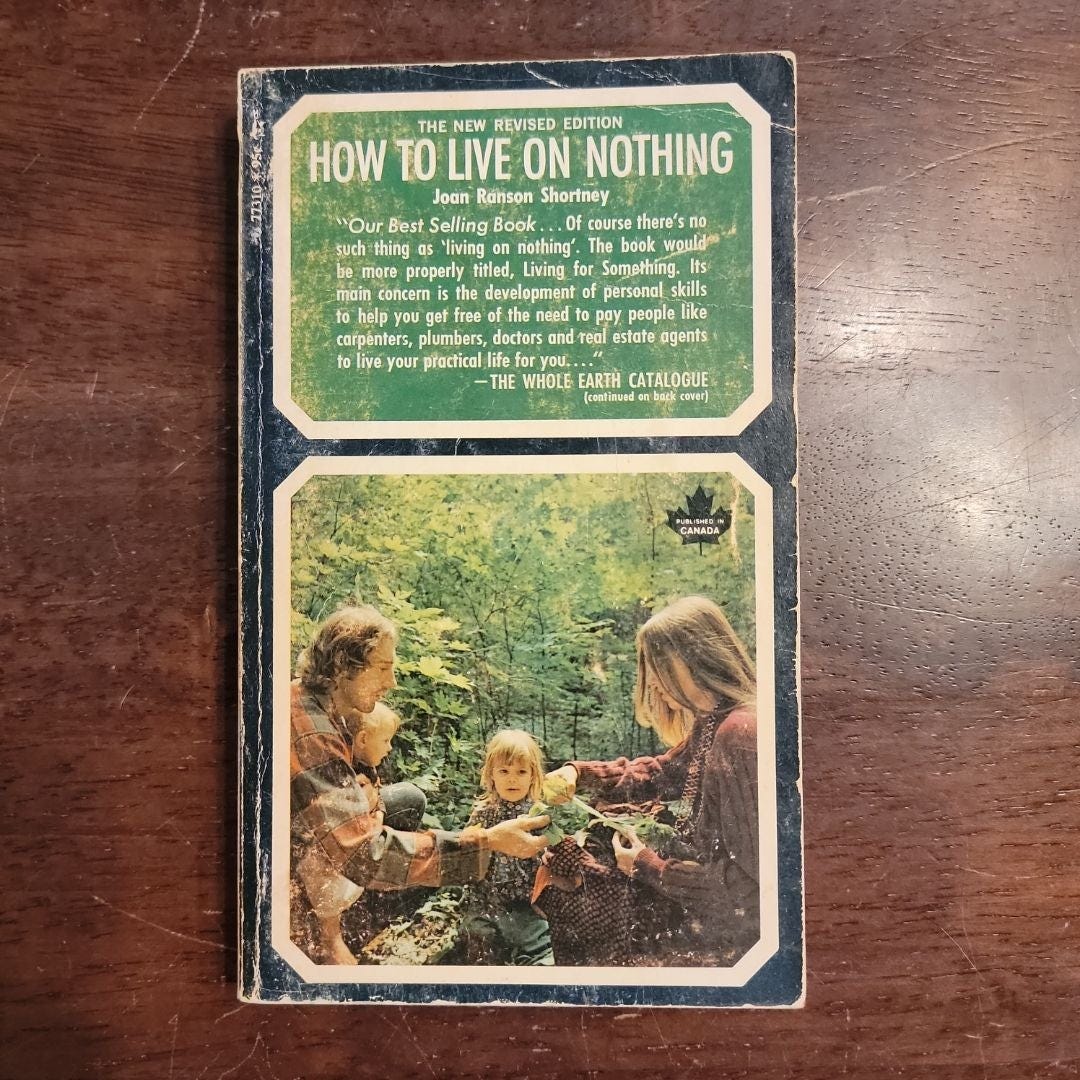Doing it yourself
What are you saving your time for?
It’s that time of year when the leaves are turning first into beautiful shades of red and orange and then into an irritating chore, so I find my mind turning, once more, to the topic of leaf blowers.
People hate leaf blowers, unless they happen to be using one themselves, in which case they’re a labor-saving tool you wouldn’t dream of giving up. They’re a technology that enables you to trade an hour of irritating labor for 15 minutes of irritating noise pollution. Whether or not you consider this a fair trade says something about how you view your own time and your obligations to your community, but it also largely misses the point. Most people who run leaf blowers aren’t aspiring gentry dealing with the upkeep of their large country estates — they’re landscapers hired to deal with a few dozen suburban yards weekly, which means they need the time-saving power of the tool to make their services affordable. The noise is an unavoidable externality that can’t be eliminated by simple preference. These guys don’t have time to use a rake, and the people hiring them decided they didn’t either.
Neighborhoods go through a sort of demographic transition where the middle-class ethos of taking care of one’s own yard gives way to hiring those services out. I’ve lived in both kinds of neighborhood over the years, and I found myself in a professionally-landscaped one during the work-from-home era of covid. Doing my diligent best to attend to my laptop job from a repurposed bedroom, I would be interrupted for several hours daily by the intermittent drone of leaf blowers. The electric ones are marginally quieter than the gas ones, but they still make a racket. And it occurred to me that the nice family neighborhood I lived in only put up with the noise because most of the residents were gone during the day in the pre-plague times. Both parents worked, the kids were in school or daycare or activities from breakfast to dinner. Under normal circumstances, the landscapers were performing their dirge for an absentee neighborhood, but the weird liminal time of covid lockdown turned that situation, along with so much else, on its head. If the other neighbors (presumably working from home at their own laptop jobs) were bothered by the noise like me, they didn’t tell me about it. It wasn’t the kind of neighborhood where people made an effort to know their neighbors.
The transition to paid yardwork happens slowly at first, then all at once as more neighbors see the landscaping crews hired by first-movers and decide they shouldn’t bother doing the work themselves either. These services are typically quite affordable for the professionals living in the neighborhood, and the results look great most of the time. So why not hop on board and leave the chore of yardwork in the past, where most of us left the work of hand-washing dishes and clothing? What’s the problem with hiring help?
The most granola, crunchy girl I dated in college had a dog-eared and much-loved copy of a very hippie publication called How to Live on Nothing that I often thumbed through at her apartment in between bong rips. It’s a cult classic for alt-lifestyle types, and despite the cover illustration has relatively little to do with foraging for edible plants in the woods. Instead, inside you’ll find tips on how to cheaply refurbish the upright pianos that people often give away for free (still true today, check Facebook marketplace), how to sew your own clothing, how to fix common plumbing problems, and yes, how to maximize food production from a small garden.
The front-cover blurb summarizes the ethos of those attracted to it pretty well:
This book would be more properly titled, Living for Something. Its main concern is the development of personal skills to help you get free of the need to pay people like carpenters, plumbers, doctors, and real estate agents to live your practical life for you…
There are practical reasons to do these things for yourself, framed here as being less expensive than the alternatives. But the alternate title, Living for Something, touches on a deeper and more essential truth for those of us lucky enough to have disposable income and choices in how we spend our time and money. Caring for your own built surroundings yourself accrues spiritual benefits when you take the effort to do it.
Every traditional culture knew that the act of touching something over and over, investing your care and attention into it, imbued it with magic and meaning. The things we own become careworn because we care about them, and our every interaction with them weaves another tiny thread between us and them, an indelible psychic link. The meanest kitchen implement or lowliest piece of furniture can slowly take on almost mythic importance to us through the simple act of repeated use. Everyone has experienced this and understands how real, how vital, the phenomenon is. It reaches an apotheosis in our heirlooms, passed down through the generations, bursting at the seams with the collected meaning of lifetimes of family use. Of course, my generation can’t be bothered to find space in our lives for those either. You can find Boomers practically begging people to take them off their hands on Facebook marketplace. They clash with the stuff we already own, and we own too much of it.
It’s no coincidence that now in the West, in societies with more material abundance than the world has ever known, we are in the midst of a deep spiritual crisis, a crisis of meaning. We are drowning in stuff, and none of it means anything to us. It’s so cheaply acquired, so disposable by nature. Most of it passes through our lives so quickly we can’t form a relationship with it, can never bring it magically alive through our use. Many people have noticed and mourned this situation, but the inescapable logic of the market has made it difficult to buy things that can be repaired at all, let alone affordably, and has conditioned us to not expect it or to care.
Attachment takes time and care to grow, and we refuse to give our built surroundings and possessions any more of our time and care than absolutely necessary. We resent the imposition, thinking our time too valuable to squander on the mundane. We choose efficiency and convenience every time, even when we understand we’re getting a worse deal, even when we understand our choice might be ineffably impoverishing us. The looms smashed by the Luddites produced garments for much cheaper, but did we lose something by adopting them? I think so, but who wants to break their back at a loom? Not me.
It’s possible to fight the culture of convenience, to swim upstream against the rising tide. You’ll be a weirdo, and the people you’re doing it for probably won’t thank you in the moment. You won’t even thank yourself in the moment most of the time. But you can do it. You can take on what feels like additional burdens to live for something, to invest your surrounding with your time and effort. You can build a relationship with the things you own, one chore at a time, feel your chest swell with pride as you recognize the mark of your hands on the world everywhere you turn. Doesn’t this sound like a lot of work? It does, it is.
It’s so easy to fall for the hypnotic trap of believing our true lives are lived in moments of complete repose and leisure, that episodes of household maintenance are merely irritating interludes we sweat through to get to the good stuff. But this is a dangerous lie. The happiest people you know are the busiest. The labor of your own two hands is the stuff of your life, for better or worse. Rejecting this simple truth leads to alienation, ennui, spiritual famine.
We have a big fig tree in the yard, leaves the size of dinner plates that rot before they even hit the ground. You don’t rake them up so much as mop them, a fragrant sodden mess of dying chlorophyll that fills our entire massive yard waste bin every year when I do it. I hate that fucking tree when it’s dropping leaves, I resent the imposition on my time and energy, creating work for me. But the rest of the time, I love that tree, I would die for that tree, how could it be otherwise? I’ve cared for it, cleaning up its messes, harvesting its fruit (it splats two overripe figs on the ground for every one I manage to pick), trimming its branches. A few summers ago I stepped barefoot on an evil wasp eating a squished fig that had dropped on the walk, and it stung me between two toes. It was like getting stabbed with a red-hot sewing needle dripping poison. I’ve seldom been angrier, or in more pain, and I’ve certainly never felt more alive.
I meditated on my feelings for the tree while raking over the weekend. A leaf blower would be a waste of effort in our small urban yard, and it wouldn’t move the soggy piles anyway. As I raked and scooped sopping fig leaves, my wife planted new bulbs for next spring, daffodils and tulips and crocuses. They’ll be beautiful when they bloom in March, we’ll admire them every time we come up the walk. We spend so much time caring for this place we live, time we endlessly grouse and bitch we don’t have enough of. We could easily afford to hire a landscaping service. But we consider ourselves blessed to live in the kind of neighborhood where nobody uses them.


